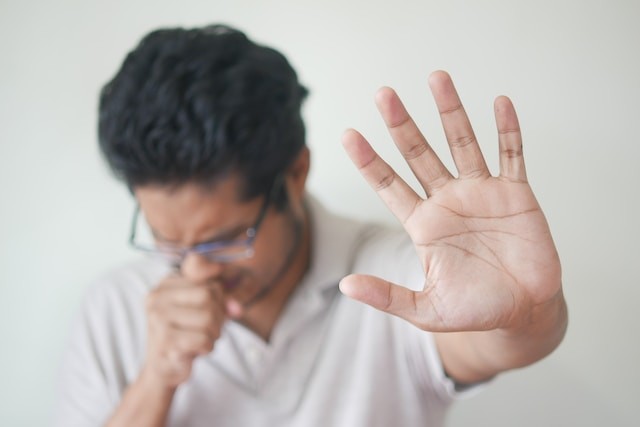As a BetterHelp affiliate, we receive compensation from BetterHelp if you purchase products or services through the links provided
Life can be full of surprises and unexpected events. Anxiety can add an interesting twist to this chaotic life through a peculiar and comical phenomenon called the anxiety cough. This refers to coughs triggered by nerves, worries, and anxiety. It can range from a sudden tickle in the throat to a series of involuntary “achoo” sounds. This phenomenon has led us to question whether our anxiety can impact our vocal cords. This article will explore the mystery behind anxiety-induced coughs and how they affect our daily lives.
Understanding Anxiety and Coughing
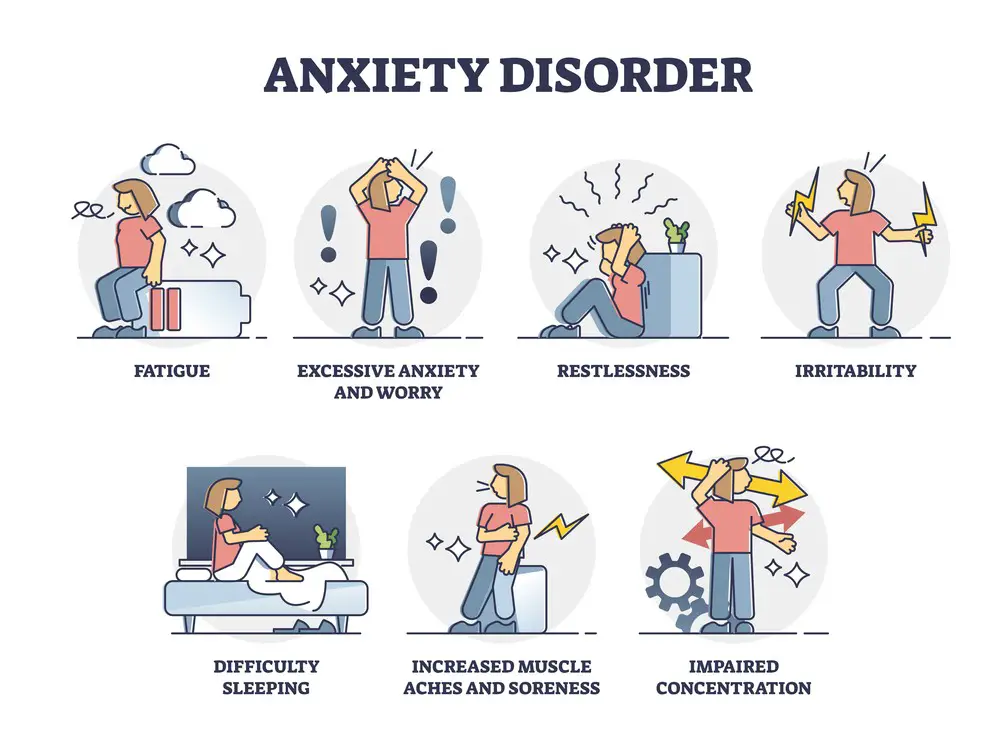
Anxiety and Its Effects on the Body
Unlike the more well-known manifestations of anxiety, such as rapid heartbeats or sweaty palms, this lesser-known and seemingly unrelated symptom profoundly impacts individuals’ lives.
Defining Anxiety
Anxiety is a natural and often adaptive emotional response to stress or a perceived threat. It involves uneasiness, worry, or fear and can manifest as physical symptoms like increased heart rate, restlessness, and muscle tension. While occasional anxiety is normal, excessive or chronic anxiety can harm a person’s mental and physical well-being.
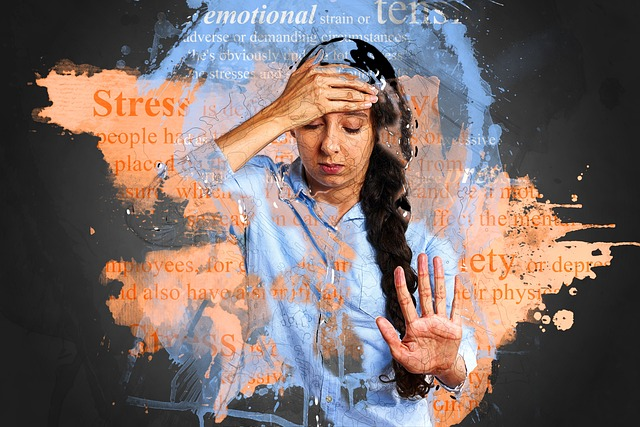
Physical Symptoms of Anxiety
Physical symptoms of anxiety can vary from person to person, but common ones include:
- Increased heart rate (palpitations)
- Shortness of breath or rapid breathing
- Muscle tension and aches
- Trembling or shivering
- Sweating
- Nausea or upset stomach
- Dizziness or lightheadedness
- Headaches
- Fatigue
- Insomnia or disrupted sleep patterns
- Dry mouth
- Feeling jittery or restless
These physical symptoms often accompany anxiety’s emotional and cognitive aspects, collectively impacting a person’s overall well-being.
Anxiety and Respiratory System
Individuals with anxiety disorders may experience hyperventilation involving rapid and shallow breathing. This can lead to various respiratory symptoms, including shortness of breath, chest tightness, dizziness, and not getting enough air. In severe cases, hyperventilation can result in a sensation of choking or breathlessness, resembling an anxiety-related cough.
Coughing Explained
Coughing is a natural reflex that serves as the body’s defense mechanism to clear the airways of irritants, mucus, or foreign particles. It typically involves a sudden, forceful expulsion of air from the lungs through the mouth, which helps remove substances that could be harmful.
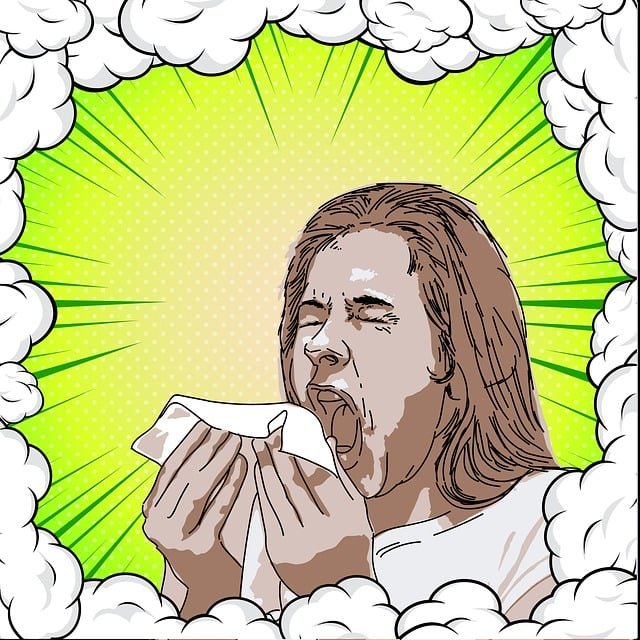
Types of Coughs
Several types of coughs are associated with different underlying causes and characteristics. Some common types include:
- Dry Cough (Non-Productive Cough): This cough does not produce mucus or phlegm. It is often associated with irritants, allergies, or certain respiratory conditions.
- Wet Cough (Productive Cough): This cough produces mucus or phlegm, and it is usually associated with infections like the common cold, bronchitis, or pneumonia.
- Chronic Cough: A cough that persists for an extended period, typically lasting more than eight weeks. It may result from various causes, including postnasal drip, gastroesophageal reflux disease (GERD), or psychological factors like anxiety.
- Barking Cough: Common in children, it is characterized by a harsh, often high-pitched sound. It can be related to croup or other respiratory infections.
- Whooping Cough (Pertussis): This highly contagious cough is associated with severe paroxysms of coughing, followed by a distinctive “whoop” sound when taking a breath.
- Psychogenic Cough (Habit Cough): This is also known as tic cough and is often linked to psychological factors, such as anxiety or stress. It can be challenging to diagnose and treat.
Identifying the type of cough is crucial for determining its underlying cause and selecting the appropriate treatment or management strategies. A healthcare professional is recommended for persistent or severe coughs, as they can help diagnose the condition and recommend the most suitable interventions.
Causes of Coughing
Coughing can be caused by a wide range of factors, including:
- Respiratory Infections: Common colds, flu, bronchitis, and pneumonia are typical culprits, leading to both wet (productive) and dry (non-productive) coughs.
- Allergies: Allergic reactions to pollen, dust, pet dander, or certain foods can trigger coughing, often accompanied by other symptoms like sneezing and itchy eyes.
- Irritants: Inhaling irritants like smoke, air pollution, or strong odors can lead to coughing as the body tries to clear the airways.
- Gastroesophageal Reflux Disease (GERD): Stomach acid refluxing into the esophagus can lead to a persistent dry cough.
- Chronic Obstructive Pulmonary Disease (COPD): Emphysema and chronic bronchitis, two main types of COPD, can cause chronic coughing.
- Medications: Some medications, particularly ACE inhibitors used for high blood pressure and heart conditions, can lead to a persistent dry cough as a side effect.
- Psychological Factors: Stress, anxiety, or psychogenic causes can trigger a psychogenic cough, which may persist due to emotional factors.
Identifying the underlying cause of coughing is essential for effective treatment or management, as the approach can vary widely depending on the trigger. If coughing persists or worsens, it’s advisable to seek medical evaluation to determine the cause and appropriate interventions.
Respiratory Health Basics
Respiratory health basics encompass maintaining a healthy lifestyle with regular exercise and a balanced diet while avoiding smoking and minimizing exposure to air pollutants. Staying hydrated, receiving vaccinations, managing allergies, and practicing proper breathing techniques contribute to lung and airway health. Regular check-ups with healthcare providers, prompt treatment for respiratory issues, and adherence to occupational safety guidelines further support optimal respiratory well-being. Prioritizing these basics ensures the efficient functioning of the respiratory system, which is vital for overall health and vitality.
Anxiety as a Trigger for Coughing
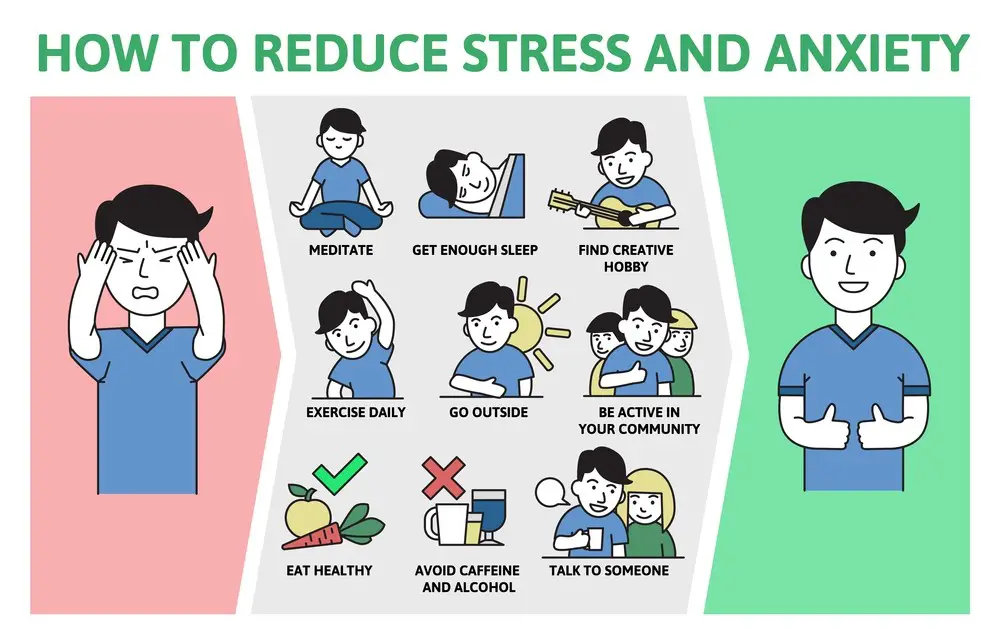
How Anxiety Can Lead to Coughing
Anxiety can lead to coughing through a complex interplay of psychological and physiological factors.
Stress and Hyperventilation
Stress can lead to hyperventilation, a condition where a person breathes rapidly and shallowly, often without realizing it. This excessive breathing disrupts the balance of oxygen and carbon dioxide in the bloodstream, causing lightheadedness, dizziness, and tingling sensations. Learning relaxation techniques, deep breathing exercises, and mindfulness can help manage stress and prevent hyperventilation, allowing for a healthier and more balanced breathing pattern.

Anxiety-Induced Airway Irritation
Anxiety-induced airway irritation occurs when heightened anxiety symptoms or stress triggers physiological responses that can irritate the airways. During anxious moments, rapid breathing can dry out and inflame the respiratory passages, leading to a persistent dry cough or a feeling of throat tightness. This cough is often unproductive, meaning it doesn’t produce mucus. Understanding this connection and managing anxiety through relaxation techniques and stress reduction can help alleviate airway irritation and related symptoms, such as coughing, and improve overall well-being.
Cough as a Coping Mechanism
Coughing can serve as a coping mechanism in some individuals, particularly those experiencing psychological stress or anxiety. This psychogenic cough is not associated with a physical cause but rather emerges as a subconscious response to emotional distress. It can provide a temporary distraction or outlet for pent-up emotions. However, relying on coughing as a coping strategy is not a healthy or effective way to address emotional issues. Instead, seeking psychological support and stress management techniques can lead to more sustainable and beneficial ways of managing emotional challenges.
Identifying Anxiety-Related Coughing
Typical Symptoms
Anxiety-related coughing often presents with typical symptoms that include:
- Dry Cough: The cough is usually dry, meaning it doesn’t produce mucus.
- Persistent Cough: It may be chronic and persist over time, especially during heightened anxiety or stress.
- Throat Irritation: Individuals may experience a constant sensation of throat irritation or a tickle, which can trigger coughing.
- Cough Triggers: The cough is often triggered or exacerbated by stressful or anxiety-provoking events.
- Normal Respiratory Function: Despite the cough, individuals typically exhibit normal respiratory function, with no signs of respiratory infections or other underlying medical conditions.
Understanding these symptoms can help individuals differentiate anxiety-related coughing from other causes of cough and seek appropriate management or treatment.
Triggers and Patterns
Anxiety-related coughing is often triggered by psychological and emotional distress, typically during stressful situations, interpersonal conflicts, or social settings. It may follow patterns of intermittent or chronic coughing, often dry. Recognizing these triggers and patterns is vital for individuals to understand and manage the connection between their anxiety and coughing, potentially leading to more effective coping strategies and interventions to alleviate symptoms.

When to Seek Medical Advice
Seeking medical advice for anxiety-related coughing is advisable in several situations, including:
- New or Severe Symptoms
- Chronic Cough
- Altered Voice or Swallowing Difficulty
- Other Concerning Symptoms include chest pain, wheezing, shortness of breath, or unexplained weight loss.
- Exacerbation of Underlying Conditions
- Signs of Infection
Remember that healthcare providers can help diagnose the cause of coughing and determine whether it is related to anxiety or another underlying condition. If in doubt or if the symptoms are causing distress or interfering with daily life.
Relief Strategies and Coping Mechanisms
Effective stress reduction techniques are essential for maintaining mental and physical well-being.
Managing Anxiety to Alleviate Coughing

Stress Reduction Techniques
Here are some practical methods to manage and reduce stress:
- Deep Breathing
- Progressive Muscle Relaxation
- Meditation
- Exercise
- Time Management
- Journaling
- Social Support
- Nature and Fresh Air
- Mindfulness and Mind-Body Techniques
- Laughter
Remember that different techniques work for different individuals, so exploring and finding what best suits your needs is essential. Consistency in practicing these stress-reduction techniques can significantly improve your ability to manage and reduce stress.
Mind-Body Practices
Examples of mind-body practices include yoga, tai chi, and qigong. These practices have been shown to enhance relaxation, reduce anxiety, improve flexibility, and increase mindfulness.
Professional Support
Professional support is crucial in managing anxiety-related coughing. Healthcare professionals, such as therapists, psychologists, or psychiatrists, can offer various forms of therapy, including cognitive-behavioral therapy (CBT), to address the underlying anxiety and stress triggers. They can help individuals develop coping strategies, manage their emotions, and reduce the likelihood of anxiety-induced coughing; at the end of the article, we will discuss signs therapy is essential.
Addressing Anxiety-Related Coughing
Breathing Exercises
Techniques like diaphragmatic, box, or the 4-7-8 technique help individuals regain control over their breath and calm their nervous system. By reducing rapid, shallow breathing associated with anxiety, these exercises can alleviate airway irritation and the urge to cough.
Hydration and Soothing Remedies
Staying well-hydrated can alleviate the dry throat often associated with anxiety-induced coughing. Additionally, soothing remedies like warm herbal teas with honey or lozenges can relieve and reduce the urge to cough.
Medication and Medical Solutions
Medication and medical solutions can be considered in addressing anxiety-related coughing when other methods prove insufficient. Doctors may sometimes prescribe anti-anxiety medications, such as benzodiazepines or selective serotonin reuptake inhibitors (SSRIs), to manage the underlying anxiety.

Paging Dr. Freud: When to Consider Therapy or Psychiatry
We all have our quirks, but if your anxiety-induced cough starts stealing the limelight in your daily life, maybe it’s time to consider professional help. Here’s when you should think about dialing a therapist or psychiatrist:
- Public Embarrassment: If your coughing episodes draw more stares than a street magician, it’s time to consult an expert.
- It’s All-Consuming: When your cough takes center stage, overshadowing work, social outings, and even quiet moments at home, the universe sends you a sign.
- Physical Fallout: If coughing affects your throat or overall health, it’s more than a quirk.
- Failed Self-Help: A professional can offer a different tune if you’ve tried all the DIY remedies and hacks but still find yourself in a cough choir.
The Game Plan: Setting Goals for Conquering the Cough
Rome wasn’t built in a day, and your cough won’t vanish overnight. But with some clear goals, you’ll be on your way to a less “coughy” existence.
- Know Thy Enemy: Understand what triggers your anxiety and the cough. Is it public speaking, stress, or something else?
- Reach for the SMART Stars: Goals should be Specific, Measurable, Achievable, Relevant, and Time-bound. No vagueness allowed!
- Small Steps, Big Rewards: Don’t overlook the small victories. Did you make it through a meeting without a coughing fit? That’s progress!
- Get a Cough Coach: Share your goals with someone you trust. They can be your cheerleader and your reality check.
The Cough Chronicles: Keeping Tabs on Your Progress
Monitoring your goals isn’t just satisfying; it’s crucial. Knowing where you stand can help you adjust your strategies and keep the momentum going.
- Journal the Journey: Note each incident, how you felt before and after, and what you think triggered it. It’s like a detective diary but for coughs.
- Celebrate Milestones: Give yourself a treat or bask in self-pride when you hit a goal. It’s fuel for the next phase.
- Healthcare Check-Ins: Regular consultations with your therapist or psychiatrist can provide you with professional insights into your progress.
- Mind Over Matter: Mindfulness exercises can help you understand triggers and responses, offering a deeper understanding of your coughing episodes.
So there you go, from knowing when it’s time to seek professional help to setting goals and tracking your progress, you have a roadmap for tackling anxiety-induced coughs. Don’t underestimate the power of proactive steps and professional advice. Your throat—and your dignity—will thank you!
Jacob Maslow
After surviving the traumatizing events of 9/11, I took it upon myself to heal through helping others. I’m the primary caregiver of my children and understand from first-hand experience the lonely paths you have to walk as a partner and parent when leaving an unhealthy relationship.
We’re all echoing in a dark space that doesn’t have to be this empty, and that’s been my mission since finding solace and recovery in therapy: To help comfort others who are still in shock and at the prime of their struggle.
I came across BetterHelp after searching for this type of community. I wanted to belong to a body of proactive therapists and supportive therapy veterans that allowed me to see other sides of the story.
It was unconventional, and that’s what attracted me most. During my most challenging times, when my ex-wife completely cut me off from my children, I found comfort and clarity through BetterHelp.
Instead of being chained to a strict therapist recommendation, I was in charge of who I felt understood my struggle most. That allowed me to find my true peace, as I was reunited with those who read behind my words and had first-hand experience with my trauma.
Recovery is a choice; with BetterHelp, that choice will be a few clicks away. You can join their couples-oriented platform, Regain.us, for those stuck with family estrangement and toxic relationship patterns.
- Left Arm Pain and Anxiety: Understanding the Relationship - November 23, 2023
- Anxiety Paralysis: Coping with Overwhelming Stress - November 23, 2023
- Anxious vs. Nervous: Differentiating Emotions and Responses - November 15, 2023
This site contains affiliate links to products. We will receive a commission for purchases made through these links.

